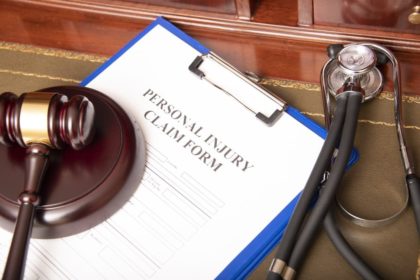Regardless of what type of injury or loss someone suffers, it can be accompanied by emotional distress. Trauma impacts everyone differently. However, one common question that accident victims and those who have suffered injuries because of the deliberate actions of another person often ask is if a personal injury case can include damages for emotional distress.
It can. However, holding someone responsible may prove challenging without help from a personal injury lawyer.
Signs of Emotional Distress

Because no two people react the same way to trauma, it is essential to understand the signs of emotional distress. Trauma resulting in emotional distress may manifest in different ways in everyone.
The Substance Abuse and Mental Health Services Administration (SAMHSA) indicates some victims of emotional distress may face:
- Lack of interest in people or events
- Inability to sleep or excessive sleeping
- Inability to eat or excessive eating
- Low or no energy
- Aches and pains which have no physical cause
- New instance of drug or alcohol abuse
- Constantly being worried about nonspecific issues
- Feelings of shame or humiliation without cause
- Suicidal thoughts or tendencies
Take these symptoms seriously after an accident or a violent crime. Seek treatment from a trained professional, and call a personal injury lawyer to recover compensation for your suffering.
Accidents and Injuries Resulting in Emotional Distress
Unfortunately, all types of accidents can result in a victim or their family suffering emotional distress when dealing with the results of an injury. When an accident results from someone’s intentionally negligent conduct, it can cause additional distress.
Some of the common types of accidents and injuries which can result in emotional distress include:
- Roadway accidents: Across Missouri, more than 45,000 people suffered an injury, and nearly 1,000 lost their life because of a roadway accident in one recent year. These accidents are more than numbers; they impact lives. An accident where a victim dies leaves family members dealing with grief and potentially facing irreparable financial harm to the family.
- Nursing home injuries and abuse: Few things can cause more distress to a family than learning their loved one has suffered an injury or has been dealing with ongoing abuse in a skilled nursing facility. Unfortunately, this happens more frequently than we would like to think. Emotional distress in these cases often involves the neglected or abused person and their entire family.
- Accidents occurring on someone’s property: Slip and fall accidents, drownings or near drownings, assaults, dog attacks, and other incidents can cause severe emotional issues. When a property owner has allowed a dangerous situation to occur on their property without consideration for visitors’ safety, long-term injuries and emotional issues can occur.
Victims and their families should not be forced to deal with the long-term financial impact of someone else’s negligence or deliberate action. Filing a personal injury lawsuit is one way for victims to ensure they can deal with their financial issues. Emotional distress compensation may be included as part of the lawsuit. A personal injury lawyer can help victims understand how emotional distress impacts their claim.
Compensation for Emotional Distress
Emotional distress compensation falls into a unique category. Because people who suffer this type of injury following an accident have no way to visibly display emotional pain, getting compensation can be challenging. However, this does not mean it is impossible.
Some of the factors which can play a role in the total compensation someone is awarded for emotional distress include:
- Evidence of distress: What documentation a victim has which shows the emotional impact of their injuries on their mental health will always play a role. Like a physical injury, the better documented, the more likely emotional distress can be proven.
- Severity of physical injuries: Unfortunately, the more serious the physical injury resulting from an accident, the higher the chances are someone will be awarded damages for emotional injuries. Paralysis, long-term physical injuries, and brain injuries are the types of injuries where emotional distress is more demonstrable.
- Skill of attorney representing victim: When an accident victim works with a lawyer who has the experience and a proven track record of success negotiating on behalf of injured clients, they understand how to ensure a victim is adequately compensated for their financial losses as well as for non-economic damages such as emotional distress.
Suffering an injury in any type of accident caused by someone’s negligence can be a life-altering event. Regardless of the type of injuries, a victim should seek compensation.
Proving Emotional Distress in Personal Injury Claims
When someone suffers a burn injury, the damage and harm are visible. Emotional distress can be as painful as a burn, yet there are seldom physical signs of this type of pain.
Some of the ways a personal injury attorney can show harm include:
- Victim’s account of injury: Often following an accident, a personal injury lawyer will recommend a victim document their daily routine, pain, and emotional condition. This is not an exercise that is without merit. This allows a victim to document the impact of their injury on their day-to-day life as well as on their mental health.
- Statements from family and friends: In many cases, a victim’s friends and family may also notice changes in their mental health. Sudden unexplained outbursts, depression, and lack of interest in what is happening with other people in their life can all be signs an injury victim has suffered mental health consequences following an injury.
- Mental health evaluation: Some victims find their emotional distress overwhelming and turn to mental health professionals for assistance. These experts’ evaluation can be instrumental in demonstrating the impact of emotional distress on a victim.
Dealing with an insurance company to get compensation for injuries is challenging, and negotiations become even more difficult when someone has suffered trauma that causes emotional distress.
Insurance Adjusters and Emotional Distress Claims
When someone files an insurance claim, an adjuster is assigned to their case. There are some instances where an accident victim may be dealing with multiple insurance adjusters.
Some examples of this include:
- Roadway accidents: When someone is injured in a roadway accident, multiple drivers can be involved. Even in a two-vehicle collision, there are personal injuries and damage to the victim’s vehicle, which means at least two insurance adjusters will be handling the claim. Although someone is paying monthly premiums to maintain the required amounts of auto insurance, insurance companies are reluctant to pay out on a claim.
- Premise liability accidents: When someone is injured on property belonging to a third party, there can be numerous complications. It may initially be unclear whether a claim should be filed with the insurance company of the person who is leasing the property or the person who owns the property. An attorney can help sort this out.
- Nursing home abuse cases: While a specific person may have caused harm to a loved one in a nursing home abuse case, the family may be forced to deal with the person’s malpractice insurance and the facility’s insurance company.
Dealing with an insurance company is always a challenge because the goal of the adjuster is to ensure the company pays as little as possible in claims. When a victim files a claim, the adjuster and the victim are not working together. They become adversaries, even when the adjuster seems friendly to the victim.
Negotiating Emotional Distress Damages with Insurers

Victims may wonder how to negotiate a settlement for emotional distress with an insurance company. Frankly, the best way to do that is to allow an attorney to handle those negotiations.
Why?
- It removes stress from the victim: An accident victim already facing mental health issues due to their injuries should be engaging in self-care. Negotiating with an insurance company is never easy. Trying to negotiate for invisible harm complicates the issue even further.
- They have experience with insurers: An experienced personal injury lawyer has experience handling insurance claims of all types. Chances are, when a victim hires an attorney to handle their claim, they will find the attorney has successfully collected damages for emotional distress in other claims they have worked on.
- Strong advocacy: Victims often think when negotiating with insurance companies that they are on a level playing field. This is inaccurate. Insurers have a team of skilled lawyers who advise them on how much information they can withhold from a claimant without violating rules. An attorney knows the rules which govern personal injury law.
Victims and family members who are already under extreme stress due to their injury or the injury or loss of a loved one. Having to negotiate with an insurer is only going to compound that stress. Unfortunately, insurers could take advantage of their emotional state to get them to accept a smaller settlement than they might otherwise be entitled to collect for their injury and the accompanying emotional distress.
The Cost of a Personal Injury Lawyer in Emotional Distress Cases
Often a victim of an injury or a family member who has been victimized because of someone’s negligence believes they cannot afford to hire an attorney. There is a lot of information about the cost of hiring a personal injury lawyer.
Here is how a personal injury attorney works:
- Free consultations: Personal injury consultations are typically free of charge and without obligation to hire the attorney who is providing the consultation. A victim or their family member can explain the type of incident and the injury involved and ask about their legal options during a free consultation.
- Hiring an attorney: A personal injury attorney will provide a retainer agreement to their client. This retainer allows the attorney to handle negotiations of claims on behalf of the client. However, this does not mean the client loses control of the claim. An attorney cannot accept or reject a settlement offer without presenting the information to the client. While an attorney will provide the pros and cons of accepting or rejecting a settlement offer, they will act in the client’s best interest and at the client’s direction.
- Legal fees and other costs: Generally, when an attorney accepts a personal injury case, they will work on a contingency fee basis. This means the client will not pay hourly legal fees. Instead, once a settlement has been secured, they will pay a percentage of their settlement to the law firm. The client will not pay legal fees if a settlement cannot be obtained. Other costs, such as document costs, filing fees, and mailing costs, are additional and will be billed to the client. However, these fees are typically explained in the retainer agreement, so they will not be a surprise to the client.
Victims of personal injuries have legal rights. Hiring a lawyer with experience handling personal injury claims, including damages for emotional distress, is always smart.
When someone has suffered an injury and is dealing with the physical aftermath of those injuries and the emotional impact of the injury, contacting a personal injury lawyer can be beneficial. Victims of an accident should schedule a free consultation today and let a skilled attorney negotiate a fair settlement on their behalf.


